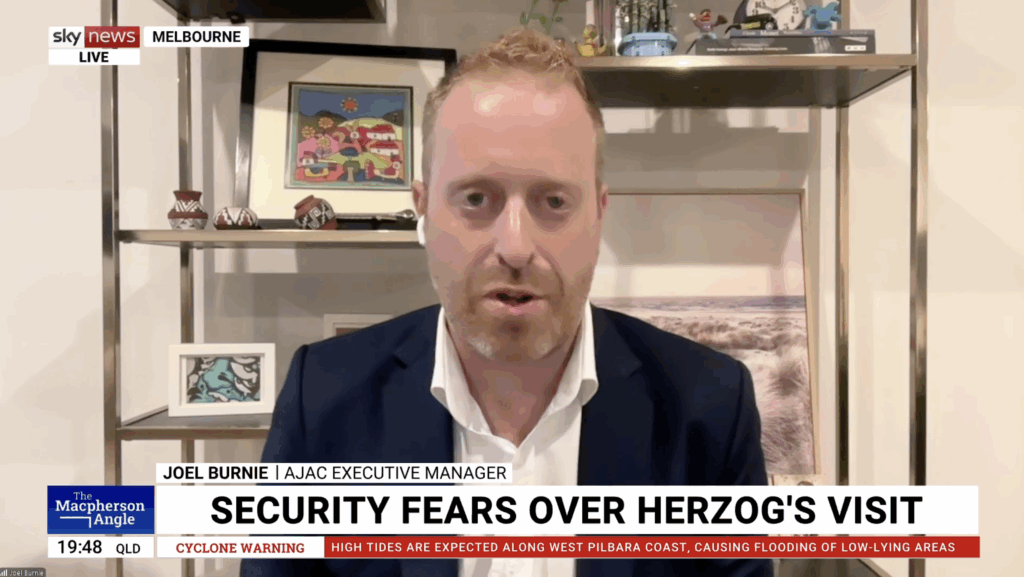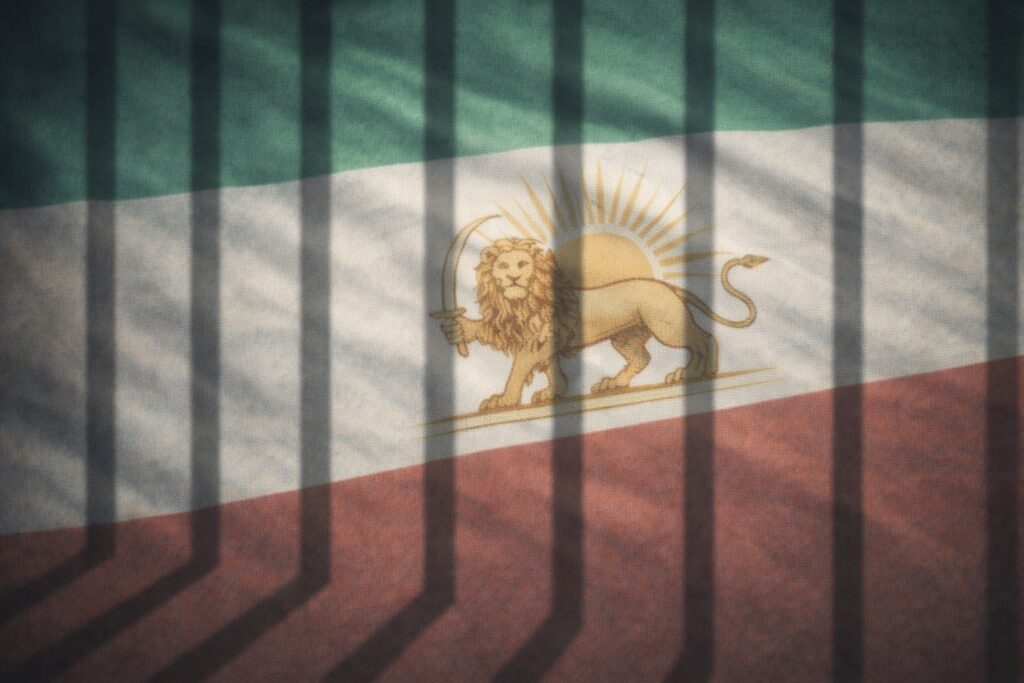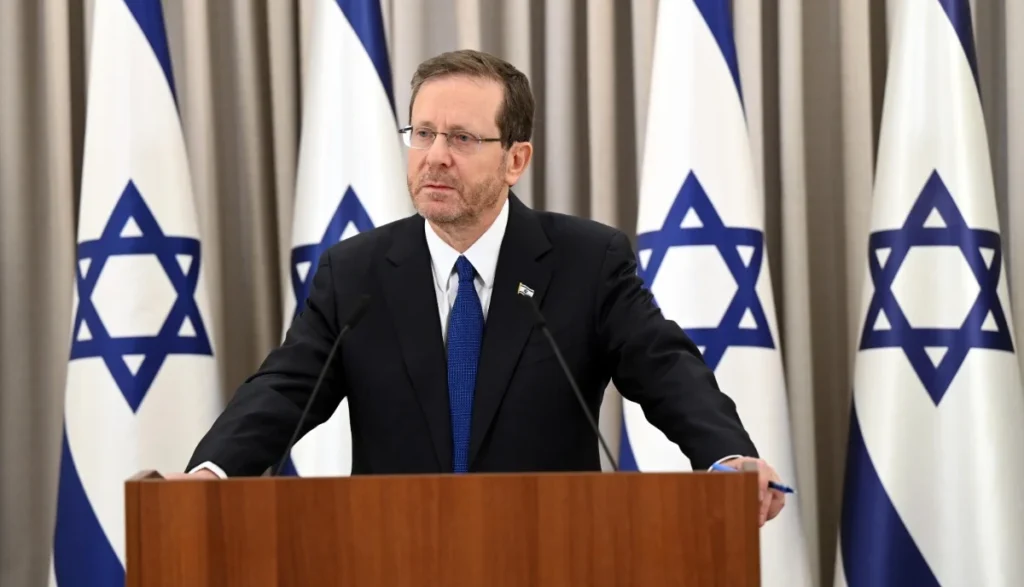UPDATES
The Implications of the Rise of Hamastan
June 19, 2007 | AIJAC staff
Update from AIJAC
June 19, 2007
Number 06/07 #07
Today’s Update offers yet more discussion of the implications of the rise of Hamastan in Gaza, now that PA President Mahmoud Abbas has appointed a new emergency government whose writ is only likely to run to the West Bank.
First up is some strategic analysis by Israeli security specialist Shlomo Brom, who predicts entrenched separation between Gaza and the West Bank, the sanctions being lifted from the latter and increased Israeli ability to target Hamas assets militarily in the former. He also canvasses a number of critical questions for the future, including whether Hamas will now seek confrontation with Israel or try to consolidate its rule, Fatah’s ability to reform, and how Egypt will react. For this good overview of how the Hamas takeover changes the security situation, CLICK HERE.
Next up, the veteran British columnist and author Con Coughlin, who argues that the rise of an Islamist statelet in Gaza essentially places Israel in the position of “having two Iranian-backed, Islamic fundamentalist organisations dedicated to its destruction camped on its northern and southern borders.” He also talks at length about how Hamas has manipulated aid and the needs of the Palestinian people to get where it is today, and is desperately trying to import more arms from Iran. For this important CLICK HERE.
Finally the Wall Street Journal had a particularly good editorial emphasising how the violent, terrorist style of nationalism developed by Yasser Arafat is to a great degree responsible for bringing the Palestinians to their current impasse. It also examines the claims that Israeli or US policy created the situation. For the complete text, CLICK HERE.
The Takeover of Gaza by Hamas
Shlomo Brom
INSS Insight (Institute for National Security Studies, Tel Aviv University) No. 21
June 17, 2007
Following the outbreak of the latest round of fighting between Fatah and Hamas, Hamas has taken complete control of Gaza and Fatah’s presence as a functioning movement has virtually disappeared. In response, Fatah has launched a wave of arrests of Hamas activists in the West Bank and the President of the Palestinian Authority, Mahmoud Abbas, has declared a state of emergency, dismantled the National Unity Government and nominated a new government of Fatah-associated technocrats headed by Salam Fayyad.
The main ramifications of these developments are:
• The separation between Gaza and the West Bank has been entrenched. This separation existed before because Israel prevented free movement between the two regions, but they have now become two distinct political entities controlled by two rival movements. In these circumstances, there is no single Palestinian political address that can presume to represent the Palestinian people vis-à-vis Israel.
• The Hamas government will now find itself, for the first time, in a situation in which it will have full control of a defined geographical area. Neither the first Hamas government, formed after Hamas’ victory in the 2006 elections, nor the national unity government actually exercised effective control because of the ongoing rivalry between the two movements and their refusal to dismantle their armed militias or renounce control of the security agencies under their authority.
• Although the sanctions imposed by international actors on Hamas may be reinforced, at least initially, those actors will probably continue to send assistance to the Gaza Strip in order to avoid a humanitarian crisis.
• On the other hand, sanctions will be completely removed from the West Bank under the Fatah government.
• The takeover of Gaza by Hamas will apparently be a source of great concern to the Egyptian regime because of its possible implications for the domestic situation in Egypt. That concern may well enhance Egypt’s motivation to prevent the smuggling of weapons into Gaza and to tighten control over the movement of undesirable elements into and out of Gaza.
At this point, it is difficult to assess the implications for the security situation along the border with the Gaza Strip. On the one hand, the heady sense of success in Hamas’ military echelon may increase the desire to demonstrate some military capability against Israel. Some elements in Hamas may also calculate that redirecting the attention of the Palestinian public to the confrontation with Israel could reduce the impact on Palestinian public opinion of the scenes of butchery and horror that accompanied Hamas’ takeover of Gaza. On the other hand, Hamas needs some relative quiet to entrench its regime in Gaza and may therefore have no interest in any immediate escalation with Israel.
For the first time in many years, there is now one clear address with undeniable responsibility for what happens in Gaza. True, this is not Israel’s preferred address given Hamas’ ideology and its refusal to accept the three Quartet conditions – recognition of Israel, renunciation of violence and acceptance of existing Israeli-Palestinian agreements. Nevertheless, the existence of a single address does provide some advantages, since the Palestinians will find it much harder to rely on the timeworn excuse that since actions launched against Israel are undertaken by forces that the government does not control, it cannot prevent them. Henceforth, there will be a single authority responsible for every operation originating in Gaza.
The transformation of Hamas into the sole ruler of the Gaza Strip also means that Hamas has more assets and therefore has more to lose. That, too, may be more convenient for Israel since it will have more options in deterring or responding to attacks originating from Gaza.
This situation will also become a primary test for Hamas in the eyes of the Palestinian public. Will the government be able to assert control over all the groups and armed factions (such as the Durmush clan) operating private militias there? The split between Gaza and the West Bank may also strengthen Hamas’ motivation to meet this test. It will need to prove to the bulk of the Palestinian population in the West Bank that its rule is preferable to that of Fatah and that it can provide a functioning, corruption-free regime that maintains a monopoly on the use of force and provides law and order. Concern about reactions in the West Bank may also lead it to refrain from imposing strict Islamic norms on the population of Gaza in matters such as dress codes and other facets of personal behavior.
Another central question relates to the long-term impact of this development. Is it the beginning of Fatah’s demise and the Islamist movement’s total takeover of the Palestinian national movement? Conversely, will it actually provide the stimulus that the secular national movement, represented by Fatah, needs in order to carry out the long-overdue reforms leading to its revival? And what will be the impact on the standing of other Islamist movements throughout the Arab world and on the readiness of incumbent regimes to take steps to block the Islamist movements? At this stage, the answers to all these questions remain unclear.
Finally, the chances for an effective political dialogue between Israel and the Palestinians as a whole, which were in any case minimal, have now practically disappeared unless Israel changes its approach to Hamas rule. Hamas’ takeover of Gaza does make necessary some low-level communication between Israeli and Hamas-government representatives in order to maintain some semblance of normal life and provide basic services to the population of Gaza, which is almost completely dependent on Israel in matters such as electricity and water supply, imports and exports, etc. However, there appears to be no chance that such communication will deviate from that very limited agenda as long as Israel adheres to its policy of avoiding any political dialogue with Hamas unless the latter first makes fundamental changes in its policy. In any case, it will be necessary to establish some mechanism to transmit messages to Hamas, either to deter it or to clarify the significance of actions it takes and the nature of Israeli responses. The alternative to such a mechanism to restrain Hamas is military escalation. At the same time, the new situation may allow a more meaningful engagement with Abbas and the Fatah government in the West Bank than the futile dialogue in which the two sides were engaged before these recent developments.
Brig. Gen. (retd) Shlomo Brom is a Senior Research Associate at The Institute for National Security Studies (INSS), (formerly known as the Jaffee Center), Tel Aviv University.
————————————————————————
Fundamentalists threaten Israel from all sides
By Con Coughlin
Daily Telegraph (UK) – 15/06/2007
Welcome to the new Islamic Republic of Hamas-stan, where every Palestinian woman is obliged to wear the veil and all traces of corrupting Western influences, from pop music to internet cafés, are strictly banned.
The creation of a mini Islamic state in Gaza now appears the most likely outcome as the militant Palestinian group Hamas strikes against the more secular-minded government of President Mahmoud Abbas.
And with fighters loyal to Mr Abbas’s Fatah movement either surrendering or fleeing, it seems that not even the might of Israel can prevent Hamas from fulfilling its long-held ambition of establishing an Islamic state within the Palestinian territories.
advertisement
The Gaza Strip, the 20-mile stretch of desert scrub wedged between Israel and the Sinai Desert, has never been a happy place. The majority of the 1.4 million Palestinians who live there are mainly refugees from Israel’s 1948 war of independence and have rarely seen their living standards rise above subsistence level. But the addition of religious fanaticism to economic privation has severely worsened their plight.
Even before this week’s violence, activists had been busy attacking cafés, video shops and restaurants that serve alcohol or sell what are regarded as subversive Western films.
An internet café at the Jabaliyah refugee camp was bombed because zealots believed its customers might be exposed to pornography or pop music. The desire to enforce a strict interpretation of Islamic law even resulted in a gunman attacking a UN primary school because it allowed young boys and girls to mix together in the playground.
And all this with Ismael Haniyeh, the Palestinian Prime Minister who came to power on the back of Hamas’s surprise election victory in the 2006 elections, yet to establish his de facto Islamic state. Even if Gaza remains under Mr Abbas’s nominal control, the implications of it becoming a self-contained Islamic entity are alarming not just for Israel, but for the wider region.
Hamas makes no secret of the fact that it now receives most of its financial and military support from Iran. The Iranian government signed a memorandum of understanding with the Hamas leadership in June last year, in which it agreed to fund the militant group to the tune of £400 million.
Until then, most of the Palestinian Authority’s funding came from the EU and America, but this dried up when Hamas came to power and refused to give up its long-standing policy of seeking Israel’s destruction or to renounce its terrorist past.
In addition to financial support, Iran provides training to members of the military wing of Hamas by sending them to camps in Lebanon and Iran run by the elite Quds Force of the Revolutionary Guards.
Past Iranian attempts to supply the Palestinians with military hardware have been less successful, with the Israeli navy intercepting a ship laden with explosives destined for Gaza in early 2002. But earlier this year, the Iranians sought to establish new supply lines to Gaza.
On February 24, Khaled Mashaal, Hamas’s supreme leader, travelled to the Sudanese capital, Khartoum, where he met senior Quds Force officials and Sudanese politicians who are broadly sympathetic to Hamas’s political objectives.
The main topic of conversation was setting up a supply route that would enable Iran to smuggle rocket-propelled grenades, anti-tank missiles, guns and explosives through the porous border between Gaza and Egypt.
The dispute over tightening the border is now one of the issues at the heart of the current violence; Hamas refuses to countenance the deployment of an international force that would seriously curtail the activities of the arms and money smugglers who use a sophisticated network of tunnels to transport their contraband into Gaza.
Pro-Palestinian campaigners frequently claim that the main reason Gaza is in crisis is that the economic blockade imposed by America and Israel following Hamas’s election victory has reduced the civilian population to penury. This was the essence of the argument advanced by Alvaro de Soto, until recently the UN’s special co-ordinator for the Middle East, who seems happy to blame anyone for the Palestinians’ plight except the Palestinians themselves.
Ordinary Palestinians, it is true, in both Gaza and the West Bank, are suffering hardship. But this is not because of a lack of funds entering the Palestinian territories: it is because successive Palestinian administrations have made no effort to distribute the resources available equably among the population.
Hamas, on the other hand, sees economic deprivation as a form of political oppression. The World Bank reported that donors contributed about £375 million to the Palestinian territories in 2006, twice the amount they received in 2005. But since taking power, Hamas ensures any funds are spent on Islamic causes and its 6,000-strong militia, leaving the majority to fend for themselves.
The bonus for Hamas is that, by forcing the majority of Palestinians to exist in dire poverty, it succeeds in attracting widespread sympathy from international do-gooders who do not understand the sadistic economic manipulation that is taking place.
Not surprisingly, many Palestinians who were previously agnostic about their Muslim heritage have found themselves embracing the Hamas cause, more out of economic necessity than religious obligation.
Hizbollah – another Iranian-funded militia – used similar tactics to establish its power base in southern Lebanon during the 1980s. Hizbollah, of course, has now become a dominant force in Lebanese politics.
Hamas is trying to replicate Hizbollah’s success in Gaza, not a pleasing prospect for Israel, which now faces the threat of having two Iranian-backed, Islamic fundamentalist organisations dedicated to its destruction camped on its northern and southern borders. It is not a thought that will help Israelis sleep easy.
————————————————————————
Editorial: Arafat’s Children
Wall Street Journal, June 16, 2007
Scores of Palestinians were killed this week in Gaza in factional fighting between loyalists of President Mahmoud Abbas of Fatah and those of Prime Minister Ismail Haniyeh of Hamas. As if on cue, it took about 24 hours before pundits the world over blamed the violence on Israel and President Bush.
This is the Israel that dismantled its settlements in Gaza in August 2005, a unilateral concession for which it asked, and got, nothing in return. And it is the U.S. President who, in a landmark speech five years ago this month, called on Palestinians to “elect new leaders, leaders not compromised by terror.” Had Palestinians done so, they could be living today in a peaceful, independent state. Instead, in January 2006 they freely handed the reins of government to Hamas in parliamentary elections. What is happening today is the result of that choice — their choice.
That election didn’t simply emerge from a vacuum, however. It is a consequence of the cult of violence that has typified the Palestinian movement for much of its history and which has been tolerated and often celebrated by the international community. If Palestinians now think they can advance their domestic interests by violence, nobody should be surprised: The way of the gun has been paying dividends for 40 years.
In 1972 Palestinian terrorists murdered Israeli athletes at the Munich Olympics. Yet only two years later Yasser Arafat addressed the U.N.’s General Assembly — the first non-government official so honored. In 1970 Arafat attempted to overthrow Jordan’s King Hussein and tried to do the same a few years later in Lebanon. Yet in 1980, the European Community, in its Venice Declaration, recognized Arafat’s Palestine Liberation Organization as a legitimate negotiating partner
In 1973, the National Security Agency recorded Arafat’s telephoned instructions to PLO terrorists to murder Cleo Noel, the U.S. ambassador in Sudan, and his deputy George Curtis Moore. Yet in 1993, Arafat was welcomed in the White House for the signing of the Oslo Accords with Israel. That same year, the British National Criminal Intelligence Service reported that the PLO made its money from “extortion, payoffs, illegal arms-dealing, drug trafficking, money laundering and fraud.” Yet over the next several years, the Palestinian Authority would become the largest single recipient of foreign aid on a per capita basis.
In 1996, after he had formally renounced terrorism in the Oslo Accords, Arafat told a rally in Gaza that “We are committed to all martyrs who died for the cause of Jerusalem starting with Ahmed Musa until the last martyr Yihye Ayyash” — Musa being the first PLO terrorist to be killed in 1965 and Ayyash being the Hamas mastermind of a series of suicide bombings in which scores of Israeli civilians were killed. Yet the Clinton Administration continued to pretend that Arafat was an ally in the fight against Hamas. In 2000, Arafat rejected an Israeli offer of statehood midwifed by President Clinton and instead initiated the bloody intifada that left 1,000 Israelis and 3,000 Palestinians dead.
In 2005, only months after Arafat’s death, Israel dismantled its settlements and withdrew its forces from the Gaza Strip. Palestinians have used the opportunity to intensify their rocket fire at civilian targets within Israel. Last month, Israeli security services arrested two Gazan women, one of them pregnant, who were planning to enter Israel on medical pretexts in order to carry out suicide attacks. Yet the same month, the World Bank issued a report faulting Israel for restricting Palestinian freedom of movement.
Now it appears Hamas has taken control of the Gaza Strip’s main road, its border with Egypt as well as the offices of the so-called Preventive Security Services, traditionally a Fatah stronghold. “They are executing them one by one,” a witness told the Associated Press of Hamas’s reprisals against the Preventive Security personnel.
We do not pretend to know where all this will lead. On Thursday, Mr. Abbas dissolved the government and declared a state of emergency, though he seems powerless to change the course of events in Gaza. Israel could conceivably intervene, as could Egypt, and both states have powerful reasons to prevent the emergence of a Hamastan with close links to Iran hard on their borders. But neither do they wish to become stuck in the Strip’s bottomless factionalism and fanaticism.
At the same time, pressure will surely mount on Israel and the U.S. to accept Hamas’s ascendancy and begin negotiations with its leaders. According to this reasoning, the Bush Administration cannot demand democracy of the Palestinians and then refuse to recognize the results of a democratic election.
But leave aside the fact that Mr. Bush did not simply call for an election: Is it wise to negotiate with a group that kills its fellow Palestinians almost as freely as it does Israelis? And what would there be to negotiate about? The best-case scenario — a suspension of hostilities in exchange for renewed international funding — would simply give Hamas time and money to consolidate its rule and rebuild an arsenal for future terror assaults. Then, too, the last thing the Palestinians need is yet further validation from the wider world that the violence they now inflict so indiscriminately works.
The deeper lesson here is that a society that has spent the last decade celebrating suicide bombing would inevitably become a victim of its own nihilistic impulses. This is not the result of Mr. Bush’s call for democratic responsibility; it is the bitter fruit of the decades of dictatorship and terrorism as statecraft that Yasser Arafat instilled among Palestinians.
Tags: Islamic Extremism





